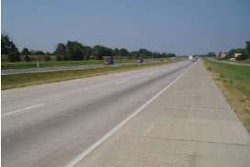Follow the Money
A fiscal year 2012 transportation spending breakdown
By John Latta
Sometimes this page is used to help readers read between the lines.
The House Appropriations Committee has released its fiscal year 2012 Transportation, Housing and Urban Development funding bill. The legislation includes funding for the Department of Transportation. FY 2012 begins Oct, 1, 2011.
And should Reauthorization actually occur, the committee would change its numbers to reflect the funding called for in that legislation. But the proposal itself does indicate the committee’s basic approach to where what money should go.
As we face extension after extension on the way to (maybe) a new six-year surface transportation bill, we continually run into the problem that no one really has a workable idea about how to fund an adequate bill in the short term (i.e. now) since no one will raise fuel taxes, by far the main contributor to the Highway Trust Fund (HTF).
Whenever the question of funding a new bill arises, it is tossed, hot-potato-style, to the House Appropriations Committee, which would have to find the machinery to bring in extra money.
In total, the bill includes $55.15 billion in discretionary spending – a reduction of $19.8 billion below the President’s request and $217 million below last year’s level. The funding level in this bill reflects the overall FY 2012 discretionary spending total of $1.043 billion, to which the House, Senate and White House agreed in the recent debt ceiling legislation.
“Step by step, we are trimming government spending and streamlining programs to make them more cost-effective, efficient and responsive to the American people,” says committee chairman Hal Rogers. “This bill saves taxpayers billions of dollars and eliminates waste wherever possible. This bill is yet another example of this Committee’s commitment to return our government to some semblance of fiscal sanity by restoring responsibility, restraint and thoughtfulness to the budgeting process.”
The Senate’s version keeps current funding levels in place.
John Horsley, executive director of the American Association of State Highway and Transportation Officials (AASHTO) said that his group applauds “the entire [Senate] subcommittee for taking this action, which avoids a major reduction in transportation investment for FY 2012. The cuts proposed in the House bill would eliminate 500,000 jobs, not to mention putting the nation further behind on many critical transportation improvements.”
Transportation Highlights from the Bill
Transportation – The bill includes $16.7 billion for the Department of Transportation for fiscal year 2012, which is $3 billion above last year’s level and $15.8 billion below the President’s request.
Highways – The bill provides $27.7 billion for the Federal Highway program – the highest amount supportable by the Highway Trust Fund for fiscal year 2012. The Committee is prepared to support a higher Highway Trust Fund spending level, should a new, multi-year authorization bill be enacted. The bill does not contain a rescission of highway contract authority from the states.
Federal Aviation Administration (FAA) – Included in the legislation is $12.6 billion for the FAA, an increase of $233 million over last year and $485 million below the President’s request. The bill fully funds the FAA’s Next Generation Air Transportation System (NextGen), allowing the FAA to move forward with the next step in modernizing the nation’s air control and airport system, which will help ease congestion and reduce delays for travelers in U.S. airspace.
Rail – The Federal Railroad Administration (FRA) is funded at $1.3 billion, which is $7 billion below the President’s request and $36 million above last year’s level. Of this amount, $1.1 billion is targeted to Amtrak, primarily for capital improvements to the nation’s rail lines. The bill also includes policy reforms for Amtrak, such as requiring overtime limits on Amtrak employees to reduce unnecessary costs, and reinstates a provision that prohibits federal funding for routes where Amtrak offers a discount of 50 percent or more off normal, peak fares. In addition, the bill does not include funding for High-Speed Rail or Intercity Passenger Rail Service.
Transit – The bill contains a total of $1.8 billion for the Federal Transit Administration (FTA), which is $1.9 billion below the President’s request and an increase of $169 million over last year. The legislation also provides $5.2 billion in state and local bus grants – the amount estimated to be available from the Mass Transit Account (trust fund) for fiscal year 2012. The Committee is prepared to support a higher formula bus spending level should a new, multi-year authorization bill be enacted. The legislation also limits transit capital investments – only funding “Small Starts” projects and those projects that have signed Full-Funding Grant Agreements with the FTA prior to Nov. 1, 2011. The legislation also includes language that prohibits new Full-Funding Grant Agreements if the project is more than 50-percent federally funded.
Safety – The legislation contains funding for the various transportation safety programs and agencies within the Department of Transportation. This includes: $731.1 million in both mandatory and discretionary funding for the National Highway Traffic Safety Administration (NHTSA) – a decrease of $65.4 million from last year; $529.7 million for the Federal Motor Carrier Safety Administration – a decrease of $25.4 million from last year; and $182.9 million for the Pipeline and Hazardous Materials Safety Administration – a decrease of $13.2 million from last year.











